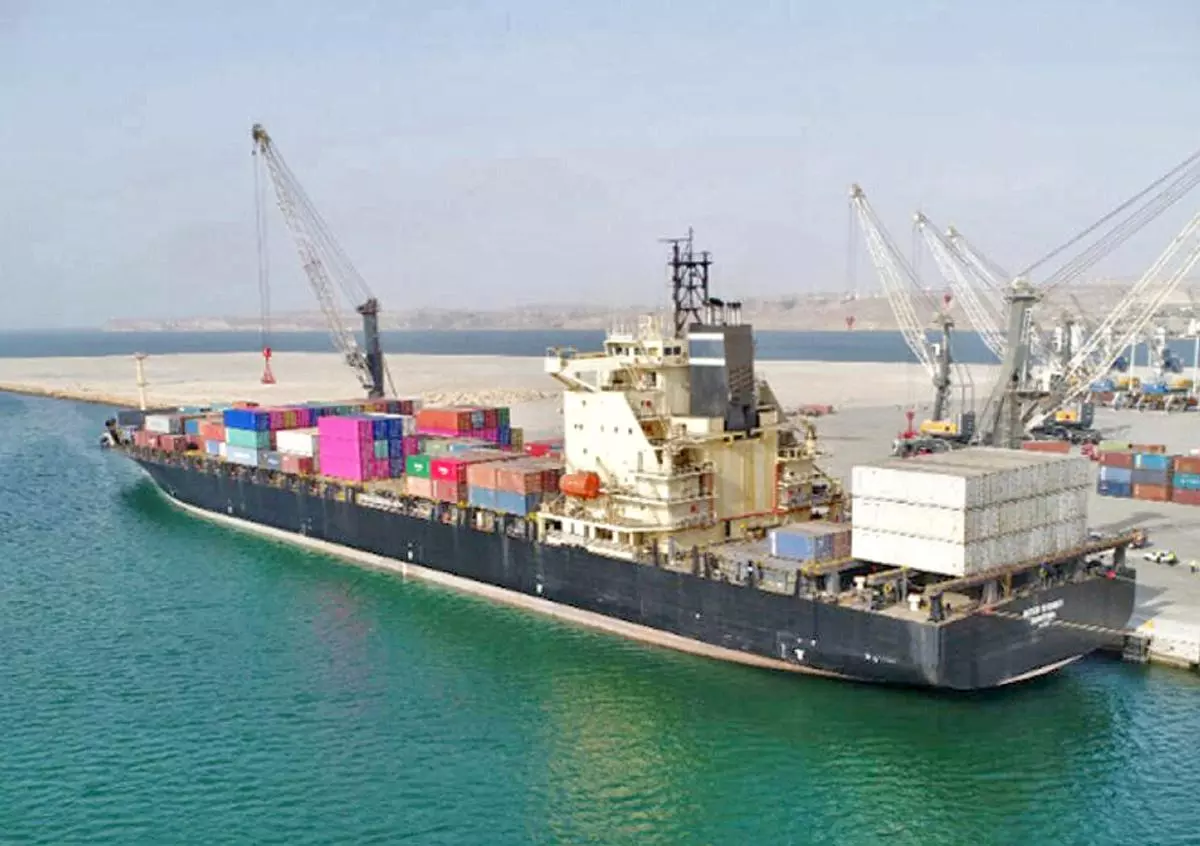In the last couple of years, New Delhi has maintained its own stand on the geopolitical developments when it came to India’s fossil fuel sourcing and making its presence felt in infrastructure projects. So, has India’s foreign policy undergone a change?
If we look at the recent turn of events — importing oil from Russia and more recently India and Iran signing a Long Term Bilateral Contract on Chabahar Port Operations and New Delhi’s handling of US warning — what does all this convey?
Let us refresh our memory. Not so long ago Iran was the third-largest supplier of crude oil for India (till 2018-19). In June 2019, the then US President Donald Trump placed fresh sanctions on Iran due to its nuclear programme and India was under pressure to bring down its imports to zero with Tehran.
What has changed now?
“Chabahar is different. Chabahar is a bilateral project between India and Iran. It serves India strategic interest. We have been clamouring for so long for connectivity with Afghanistan and Central Asia. We have been agitating this point that Pakistan has prevented the natural,” said Talmiz Ahmad — former Indian Ambassador to Saudi Arabia, Oman (2003–04), and the UAE (2007–10).
He was Additional Secretary for International Cooperation in the Ministry of Petroleum and Natural Gas in 2004-06.
The Long Term Bilateral Contract on Chabahar Port Operation was signed between Indian Ports Global Limited (IPGL) of India and the Port & Maritime Organisation (PMO) of Iran, enabling operation of Shahid-Behesti in Chabahar Port Development Project for a period of 10 years.
Earlier, a Memorandum of Understanding (MoU) for development of Chabahar Port by India was signed in May 2015. Thereafter, the contract was executed on May 23, 2016 at Tehran (Iran) during Prime Minister Narendra Modi’s visit to Iran. This agreement aims to enhance regional connectivity and facilitate trade, particularly between India, Iran and Afghanistan. The India Ports Global Chabahar Free Zone (IPGCFZ), a subsidiary of IPGL, facilitated the first consignment of exports from Afghanistan to India in 2019.
According to Kabir Taneja, Fellow in the Strategic Studies Programme at the Observer Research Foundation, “Chabahar is probably, the only thing working in the India-Iran relationship, right now.”
India will “work at” explaining that the Chabahar port is in the region’s interest, External Affairs Minister S Jaishankar was reported to have said, when responding to a query on the US government’s remarks about the “potential risk” of sanctions to companies working on the India-Iran joint venture.
India has not only lost a key oil supplier in Iran, the fate of the ONGC Videsh Iran project – Farsi Block’s is still unknown. Farsi is an offshore block in Persian Gulf Iran. The ONGC Videsh-led Indian Consortium (IC) carried out exploration activities in Farsi Block under an Exploration Service Contract (ESC) signed on December 25, 2002.
OVL has written to the National Iranian Oil Company regarding the project and is awaiting response from the operator.
Energy security
How should one read this development? And what does it mean for India’s energy security?
“You know India’s approach towards Iran now is actually more important, or at least to maintain it at a certain level because of Afghanistan first and foremost, and Central Asia. Central Asia less so, because we really don’t have the capacities to put in a lot of money into Central Asia, where as far as infrastructure goes. Keeping the foot in the door is extremely critical for future endeavours,” said Taneja.
“Our need for energy expanded and simultaneously we were not able to expand the resources. So we are import dependent. We were import dependent to the extent of about 80 per cent 25 years ago and we are import dependent to the same extent 25 years later. Now our needs have increased exponentially,” said Ahmad.
“We are going to be hydrocarbon and fossil fuel dependent, at least for the next 20 years, if not 30 years. Let’s be very clear about that,” he said adding that but green transition has to happen simultaneously. “We should not lose out on both sides that you neither get the hydrocarbons that you need, nor do you do the grain transition.”
India has been expanding its fossil fuel sourcing basket, but it also sees its energy demand soaring with domestic production falling short of the requirement, therefore maintaining good ties with fossil fuel producing countries is crucial. Good relations will not only help in supply availability but also at times in getting a good price.
As in case with Iran, there have been instances where China has taken advantage of the situation by not only locking the fuel supply but getting infrastructure projects as well. India had tried pitching for integrated projects, Sudan is one such example, but couldn’t succeed much with other countries.
Should India opt for integrated project approach?
“There is a very deep gap between their dreams and visions of officials and journalists, and what actually happened on the ground,” Ahmad said adding that it is very difficult to get all stakeholders — different ministries and sometimes different departments of the same Ministry — on the same page.
According to Taneja, “As far as what India should do when it comes to integrated approaches, there are limitations and limitations stem from various factors including sanctions.”
India may seem like a late mover in the current scheme of things in the geopolitical space but it has made its voice heard.
But what it now also has to keep in mind is the relevance of its energy security. New Delhi will need to be consistent with its strategy and not succumb to external pressure.

